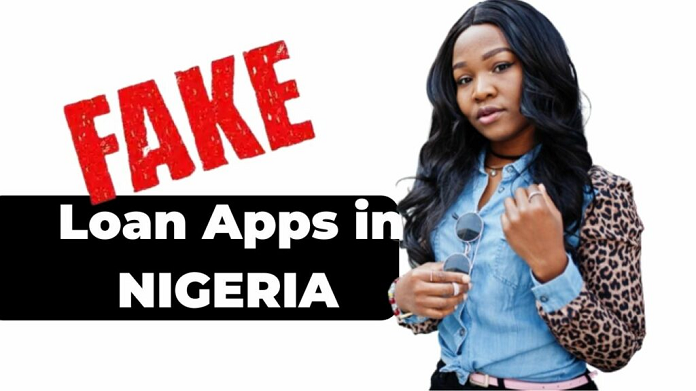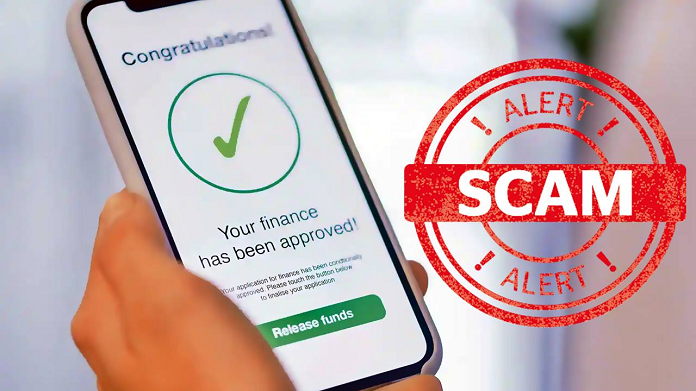Fake loan apps and companies in Nigeria have become a growing concern for individuals seeking financial assistance. These fraudulent entities claim to offer quick loans with minimal requirements, but their true intention is to scam unsuspecting borrowers. These dubious apps and companies often request personal information and charge upfront fees, promising loan approval without conducting proper background checks. However, once the fees are paid, the loans never materialize, and the victims are left in financial distress. It is crucial for Nigerians to be aware of these scams and exercise caution when applying for loans, choosing reputable and licensed financial institutions instead.
What Makes A Loan App Fake?
A loan app can be considered fake if it displays certain red flags. One common sign is the absence of a physical address or contact information for the lender. Fake loan apps may also request unusual or excessive personal and financial information, such as social security numbers or bank account details. They may lack proper documentation, such as loan agreements or terms and conditions. Furthermore, it can be deemed suspicious if the app promises guaranteed approval without conducting appropriate credit checks or verifications. Lastly, it is likely fraudulent if the app asks for upfront fees or payments before granting the loan.
List of All the Fake Loan Apps in Nigeria
The Federal Competition and Consumer Protection Commission (FCCPC) has delisted some fake and illegal loan apps in Nigeria from the Google Play Store, including Camelloan, Swiftkash, Joy Cash-Loan, and many others. These apps were found to be violating consumer rights and engaging in unfair practices. You can find the complete list of the delisted apps and more below. Please be careful when using any loan app and always check their terms and conditions before applying.
- Cashpal
- Xcredit
- 9Credit
- 9ja Cash
- AimLoan
- BGloan
- BorrowNow
- Camelloan
- Cash Club
- Cash door
- Cash Mall
- Cash Wallet
- Cashlawn
- CashLion
- Cashmama
- Cashme
- ChaCha
- Creditbox
- CreditHall
- Crediting
- Creditwise
- Crimson Credit
- Eaglecash
- Ease Cash
- Easy Moni
- EasyCredit
- Easynaira
- FastMoney
- Firstnell
- Flypay
- ForNaira
- Galaxy Credit
- Getloan
- GGMoney
- GoCash
- GotCashger
- GotoCash
- Hen Credit loan
- Here4U
- Imoneyplus-Instant
- Joy Cash-Loan
- Kashkash
- Kashpal
- LCredit
- LendCash
- Luckyloan Personal Loan
- Made Easy
- Maxi Credit
- Moneytree finance
- Naija Cash
- Naira Naija
- Nairaeasy gist loan
- Nairaloan
- Nairanaija-Instant
- NairaPlus
- NCash
- Nownowmoney
- Nut loan
- PalmCredit
- Rapid Naira
- Secucash
- SoftPay
- Sokoloan
- Spark Credit
- Speedy Choice
- Swiftcas
- Swiftkash
Other Details to Look Out for in Identifying Fake Loan Apps

When identifying fake loan apps, there are several other details to look out for apart from the obvious signs like poor grammar, spelling mistakes, and unrealistic loan offers. Here are some important details that can help in spotting such apps:
Developer Information
Check the developer information of the app before downloading. Look for reputable and well-known developers. Fake loan apps often have unknown developers or developers with suspicious names, implying a lack of credibility.
Reviews and Ratings
Pay attention to the reviews and ratings of the app in the app store. Fake loan apps may have a low number of reviews, most of which are negative, or may have multiple reviews with similar language and excessive positivity, indicating fake reviews.
App Permissions
Be cautious of loan apps that ask for unnecessary permissions. Fake apps may request access to your contacts, camera, SMS messages, or other personal data that has no relevance to the loan process.
Website Verification
Check if the loan app has an official website. Verify the website’s authenticity by looking for clear contact information, professional design, and secure payment gateways. The lack of a credible website is a red flag.
Social Media Presence
Genuine loan providers usually have an active social media presence. Look for official social media accounts, check the activity, and see if the content aligns with what you would expect from a legitimate loan provider.
Customer Support
Legitimate loan apps typically have responsive customer support. Try contacting their support channels to gauge their responsiveness and professionalism. If they lack any clear communication channels or do not respond promptly, it indicates a potential fake app.
Lack of Legitimate Credentials
No registration with the Central Bank of Nigeria (CBN) or other regulatory bodies. No official physical address or contact details. Unclear or incomplete information about the company behind the app.
Unsolicited Calls, Messages, or Emails
Repeated spam calls or unsolicited SMS messages offering loans, emails promoting loans sent without your prior consent, and unsolicited calls, messages, or emails associated with fake loan apps refer to fraudulent communications targeting individuals seeking loans. Scammers contact victims without their prior consent, offering loan opportunities or requesting personal and financial information. These deceptive practices aim to deceive and defraud individuals, often resulting in financial loss or identity theft.
Excessive Personal Information Requirements
These fake loan apps requests for unnecessary or overly detailed personal data, like bank account credentials, National Identification Number (NIN), or BVN (Bank Verification Number) for scam purposes.
Upfront Fees or Charges
Legitimate loan apps usually deduct fees or charges from the approved loan amount, not before the loan is disbursed. Be cautious if an app requests payment for “processing fees” or “insurance” before granting the loan.
Vague Loan Terms and Conditions
A lack of clarity in loan terms and conditions can lead to confusion and potential issues for both the lender and the borrower. Examples include a vague interest rate, a lack of a clear repayment schedule, late fees and penalties, unclear collateral requirements, and unclear prepayment terms.
These ambiguities can make it difficult for the borrower to accurately plan their repayments and understand the total cost of borrowing. Additionally, the loan terms may not clearly state the consequences of late payments or default penalties, creating uncertainty for the borrower.
The lack of detail also affects collateral requirements and the lender’s ability to recoup investment. Therefore, loan terms and conditions must be precise, providing clear details to ensure both parties understand their rights, obligations, and potential costs.
Non-Secure or Unverified Payment Methods
Fake loan apps may request payment via non-conventional methods like gift cards, cryptocurrencies, or untraceable money transfer platforms. Non-secure or unverified payment methods refer to forms of payment that lack proper encryption or authentication processes, increasing the risk of fraud or unauthorized access to sensitive financial information. These may include cash transactions, personal checks, or unsecured online platforms that do not require identification verification, potentially compromising the security of transactions and personal data.
Unrealistic Loan Offers
Fake loan apps promise extremely low interest rates or guaranteed loan approvals regardless of credit history. Offers that sound too good to be true or significantly differ from market standards.
Remember, exercising caution while sharing personal and financial information online is crucial. Using trusted sources and established financial institutions for your loan needs is always recommended.
